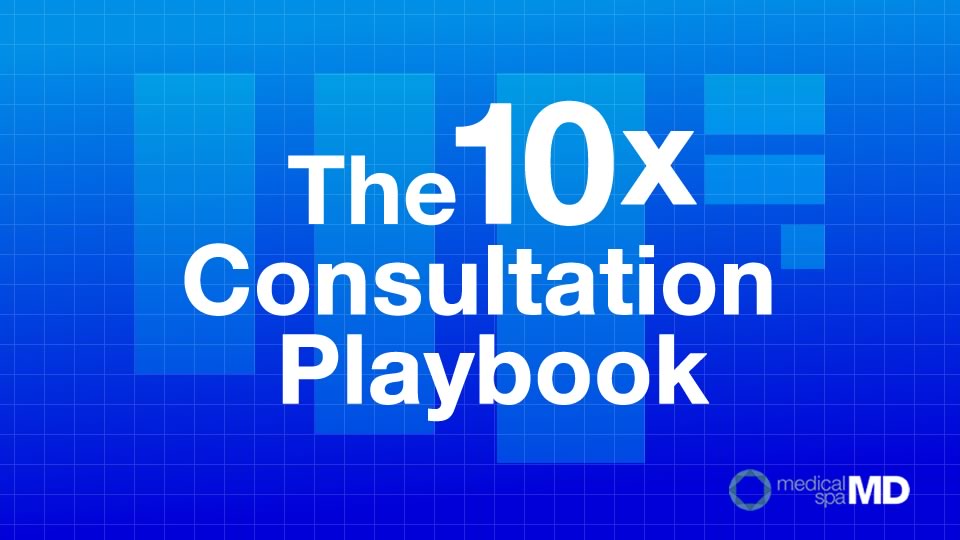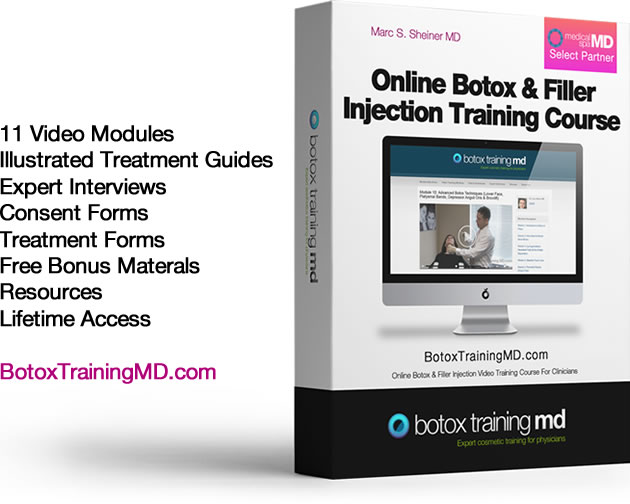(One interesting note; In speaking with two different clinicians who had rated themselves as a 7 and an 8 in this survey I brought up the fact that their self-rating put them in the 'average' column. Both of them immediately re-calibrated and added another point or two to their rating in order to remain above average.)
You may have a competitor that is not using technology as good as yours, is not as technical skilled, does not deliver outcomes that are as good as yours, who is charging more (or less) than you do, but is still taking patients away from you. It's maddening, but there's a reason. They're delivering great consults. They're building empathy and trust with their patients. They're guiding along the journey that patient is asking for. There's no way you can compete with that based on having a newer IPL and - if you're going to be competitive - you're going to have to get better at consultations.
But there is good news. Mastering patient consultations is a skill set you can learn.
The money is made in the consultation room.
Great consultations are the secret of incredibly profitable clinics. They almost print money. Great consultations fill your schedule and treatment rooms and create fanatically loyal patients and they boost your revenue faster and easier than any other thing you can do as an individual. And great consultations come in all sorts of flavors.
It doesn't matter what your 'shtick' is. You may be rolling old school as a luminary plastic surgeon with a hundred degrees on your wall and a staff of 40, or you may be a family practice doc who's just learning Botox, or you might be setting up a new clinic and going through some sleepless nights wondering how you're going to pay for everything. Your consultations are something that you can improve that makes an immediate difference.
I've seen a lot of clinicians who are fantastic in the consultation room.
- A plastic surgeon from Brazil who was all air kisses and theatricality. He looked and acted every bit of the Hollywood cliche plastic surgeon from his slicked back hair to his designer suits, but when he walked into the consultation room he stepped off his pedestal and patients knew they could trust him.
- A Ukrainian physician who was working in the US as an esthetician with movie-star looks and fashion sense who literally sold three times as much as the physician in the clinic.
- A goof-ball dermatologist who could barely dress himself and looked half the age of his patients open a brand new clinic and destroy the entrenched local competitors by being a boy-next-door.
- An internist who was completely new to aesthetics pull a clinic out of foreclosure and make it insanely profitable by sitting down with patients and talking girlfriend-to-girlfriend.
All of these clinicians were different, but they all killed it in the consultation room, not because they were consultation savants, but because they understood that consultations are critical to success and they worked hard to improve. Their tactics and personalities varied dramatically and the way they presented to the patient were completely different, but the formula they followed was the same every time.
That structure, that system, that repeatable formula is what the 10x Consultation Playbook delivers.
Hope is not a strategy.
It's not going to happen by itself. You weren't trained in sales. In fact, some of the things you were taught are actively hampering you. You're not going to suddenly understand everything you need to know and do to improve your sales and neither is your team.
I can not tell you the number of times when I've asked clinicians how they start a consultation and it's some form of "tell me what you'd like done", or they hand the patient a mirror with something along the lines of "tell me what you see that you don't like". Worse still are the clinicians who actually just launch in to a litany of all the things they can see that they could "fix", oblivious to the frozen smile on the patient sitting their horrified and embarrassed to find out that they're such a wreck.
The fact is that great businesses aren't built on luck or chance. The're built on repeatable rules and proven processes and reliable frameworks.
It may not sound too exciting, but I'm okay with that.
Because you know what is exciting? Implementing your new systems and finding that your conversion rates, and revenue spike. That is sexy. The best parts of business always are - without fail - the measurable parts. Everything else is just guesswork. And you can't build a business that wins by just relying on your guesses.
Systems help you pre-decide what’s important to you — ONCE — and then force you to stay focused. Instead of your clinic staff wondering what they should do… or making it up on the fly… you’ll have a clear system to follow that is both structured, and flexible, so you’re not working with so many variables that you have no clear idea what's working and what's not.
Once you integrate these systems into your clinic, you’ll feel the freedom of being able to make decisions and see their effects rather than just hoping that you're headed in the right direction.
Think of a simple system you already use — where you put your keys. Maybe it’s by the door, or in the kitchen. Yet it’s become a habit and you never think about it. You don’t have to “try harder” to put the keys where they should be… it just works. It’s mindless. And it does what it needs to do.
Now think about your consultations and the way they work.
You already have a 'system' that you're using. You're beginning the same way, you ask the same questions, and you give the same answers to the same questions each time. That's something of a system, but is it the best you could do? Couldn't it be improved if you actually had a structured system and formula that ensured that every consult was perfect?
That's why we're moving the Playbook up to be the next course we publish; because the money really is made in the consultation room and improving your consultations is the single easiest thing you can do with your existing clientele to bring in more revenue.
You don't have to spend money on advertising, or buy a new fractional laser. You just have to spend some time starting with the basics and building on your existing skill set. you don't have to get a new license or insurance rider. You don't have to travel or take on inventory. You just have to learn and use some new skills that you can put to use immediately.
That's why I know that when you improve your consultations, you're going to see results.










